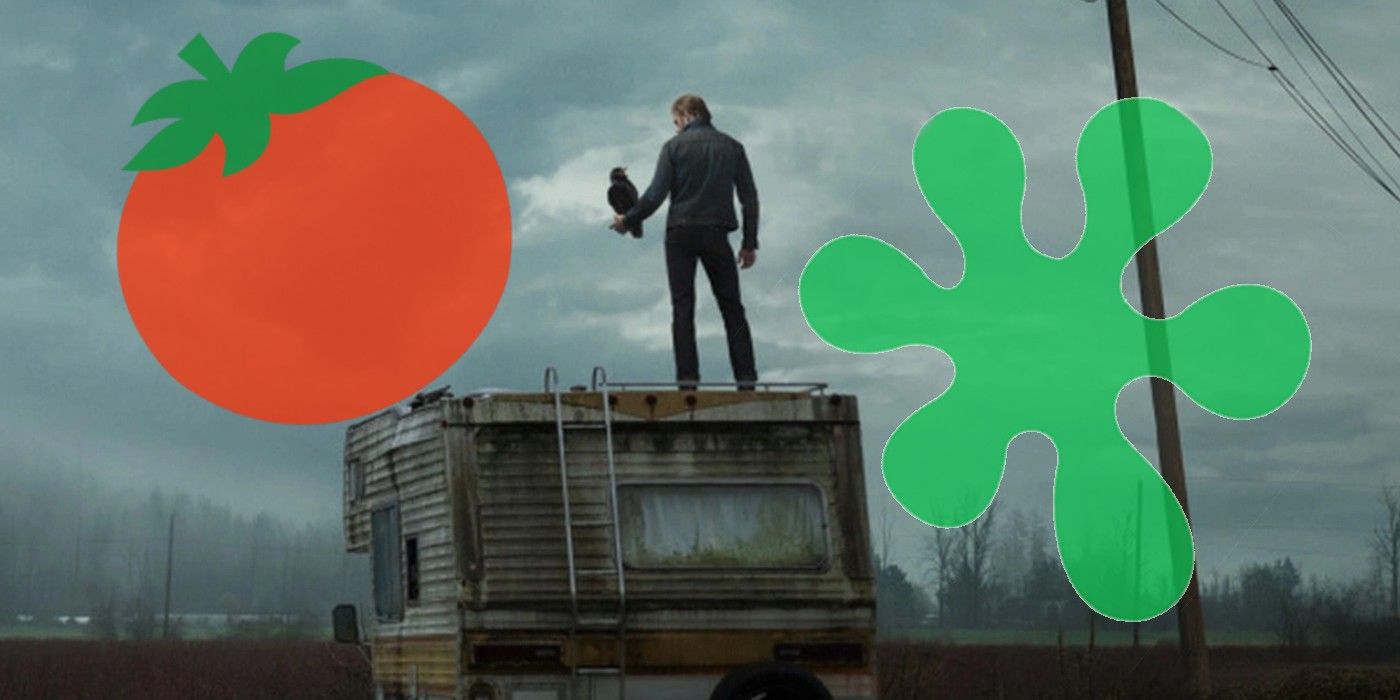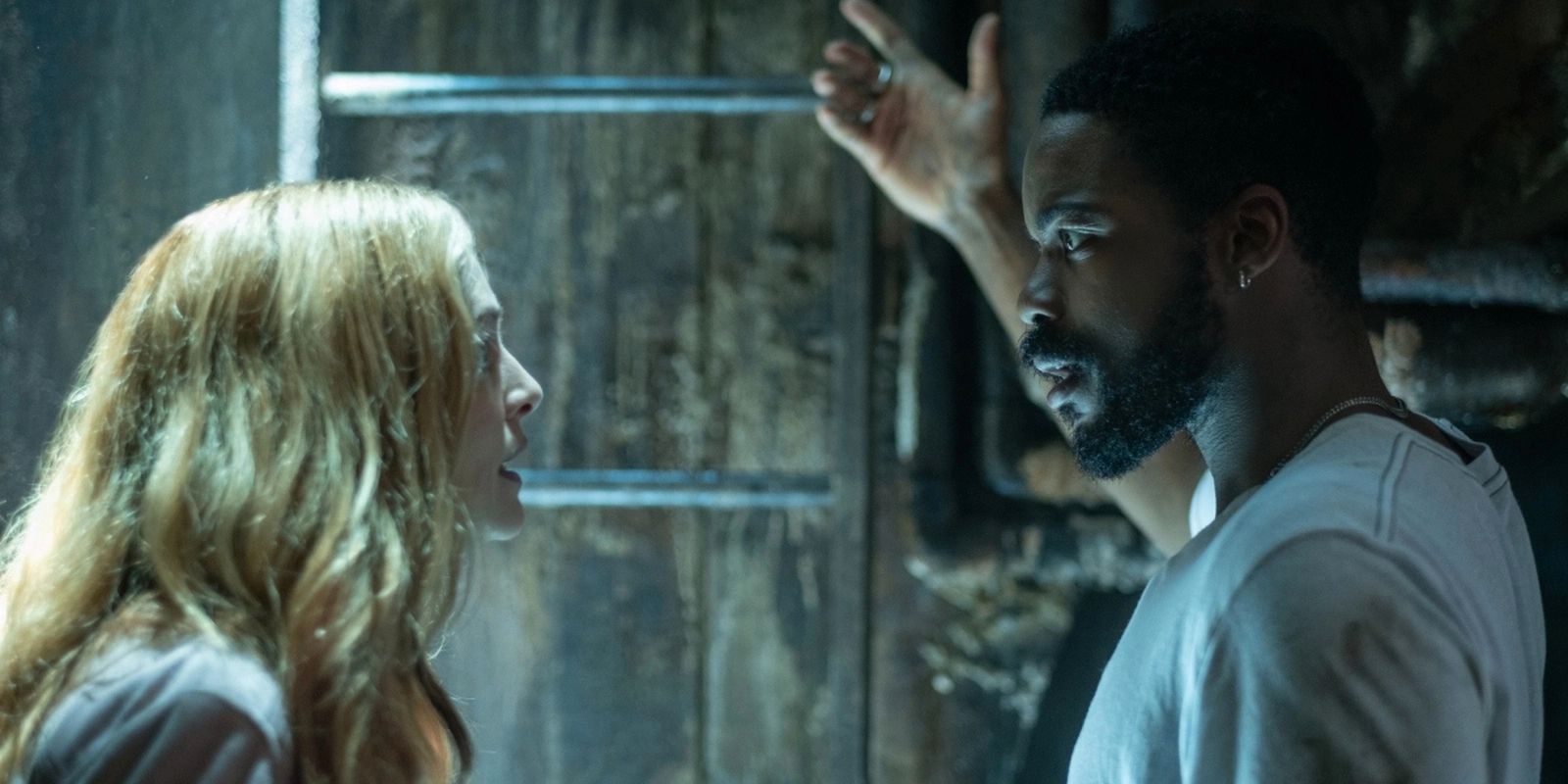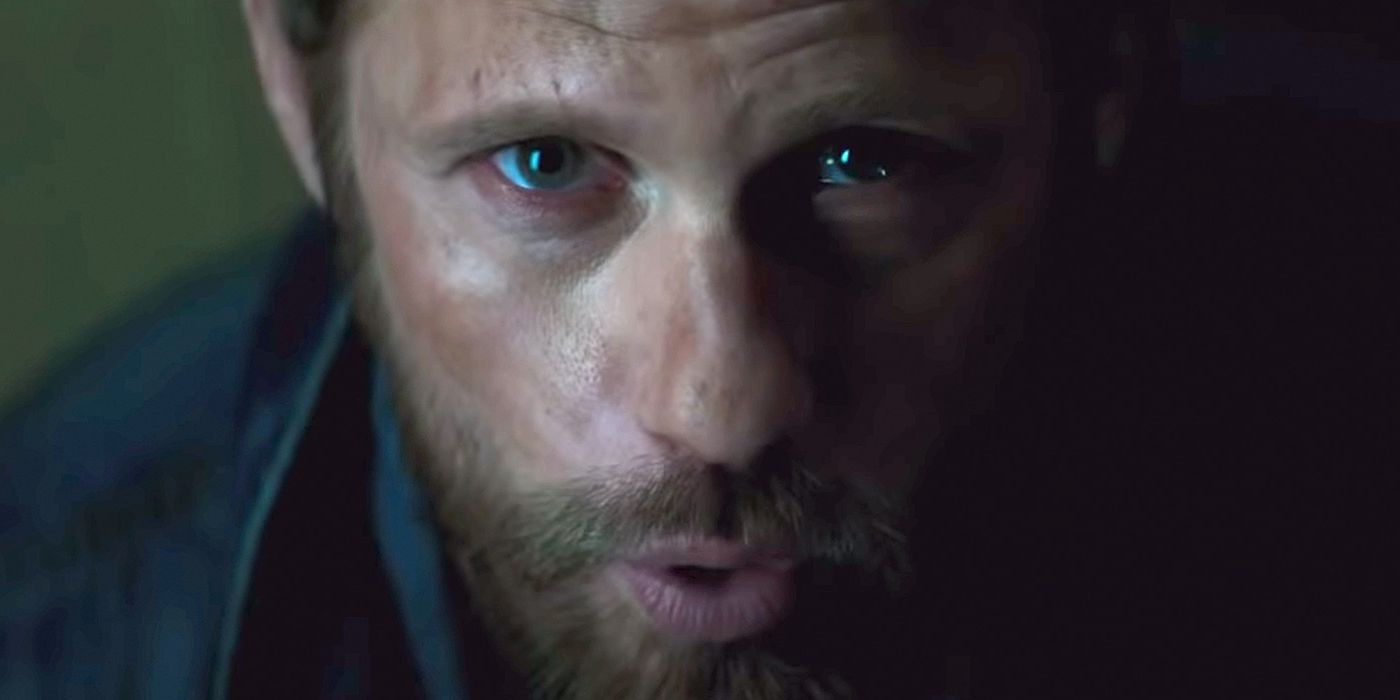
CBS’s 2020 miniseries The Stand has garnered mixed reviews from both fans and critics for several reasons – here’s what the reviews are saying about the new Stephen King adaptation.
Adapted from Stephen King’s 1978 post-apocalyptic novel of the same name, The Stand centers around the events that take place after a severe strain of the flu virus wreaks havoc on the world. It stars Alexander Skarsgård as the main antagonist Randall Flagg alongside Whoopi Goldberg as Mother Abagail, Owen Teague as Harold Lauder, James Marsden as Stu Redman, and several other high profile actors. Out of the impressive 61 novels the author has penned, The Stand remains one of his most popular among fans and literary critics. While the pandemic plot isn’t necessarily the most exciting aspect of the series, it plays a vital role in moving the events forward and is a large reason why its garnered so much attention in 2020.
With such an impressive cast, original source material, and plot, it has a surprisingly average rating on Rotten Tomatoes (54%). Not every Stephen King miniseries succeeds, which may be a major source of The Stand’s mixed reviews, but it doesn’t change the fact that the show had everything lined up in its favor that should have guaranteed its success. Most critics have criticized the timing of its release. As the COVID-19 pandemic wages on, content centered around this topic can be a bit overwhelming and all too reminiscent of real life. However, others are praising it for its ability to capture the battle between good and evil. As of this writing, there are only three episodes currently out, with six more awaiting release. There’s still time for critics to change their opinions on The Stand after later viewings, but here’s what they’re currently saying about the series.

Rogert Ebert:
“It’s a sometimes dazzling, often frustrating, and undeniably assured effort that swings hard and occasionally connects. When it does, it’s riveting television; when it doesn’t, well, it’s not boring.”
Vulture:
“This is where The Stand’s relevance becomes a bit of a liability. We have lived and continue to live through an actual pandemic, and that places the unexplained details in sharper relief.”
CNN:
“On the theory that each generation will get its own version of King’s top titles, this one meets the basic standards — touching on the author’s signature themes while dishing out old-fashioned popcorn via a relatively new-fangled medium. At nine hours, though, it’s hard to escape the nagging sensation that “The Stand” is a long sit.”
As with any book adaptation, fans and critics are going to look at this content with a magnifying glass in order to ensure that the story stays true to Stephen King’s original. Much to their disappointment, they have found that it doesn’t meet these standards, nor is it up to par with the source material. While there are some reviews that are teeter back and forth on whether The Stand is good or not, others are outright negative. This may be due to the fact that so much King content has released over the years. Most recent adaptations have garnered positive reviews, such as Andy Muschietti’s IT: Chapter One and IT: Chapter Two as well as the recently cancelled Hulu original, Castle Rock. While this is a possibility, most critics seem to agree that the contents of the show are relatively boring and don’t progress in the most cohesive fashion.

IndieWire:
“Even with a new ending penned by King himself coming up, the CBS All Access take feels like it’s stuck in time; half a cheesy made-for-broadcast event series, half a gritty, all-too-dark dive into the bottom barrels of prestige TV. Maybe it’s time to set this story down.”
Rolling Stone:
“The in media res opening is rarely a convincing disguise, though the motivations behind it are understandable. But The Stand director Josh Boone and showrunner Benjamin Cavell, who wrote the premiere together, have inexplicably done the opposite, downplaying an exciting beginning to instead land in the more workmanlike middle.”
Variety:
“Instead, showrunner Benjamin Cavell have applied a strangely sanitized sheen to the central threat of elemental evil, resulting in a miniseries that feels simultaneously over-detailed and underdeveloped. That conflicted quality makes the danger faced by the community serving as humanity’s last stand curiously subdued, and “The Stand” struggles to distinguish itself outside of its exceptional casting choices.”
The reviews for The Stand tend to go from extremely mixed to outright negative. There are some instances of praise for the series, especially considering its ability to adapt such a lengthy novel in only nine episodes. Had the showrunners gone in a different route, it’s likely that fans would’ve been more pleased. It seems like a fairly general consensus that the location and beginning in the middle of the novel have been unnecessary and highly unfavored elements in the series. Regardless, viewers can still enjoy The Stand for what it is: a Stephen King story that has undergone several modifications and adaptations that will likely continue to for as long as the author remains relevant, which is likely forever.
Originally from https://screenrant.com/cbs-stand-series-2020-reviews-explained/
